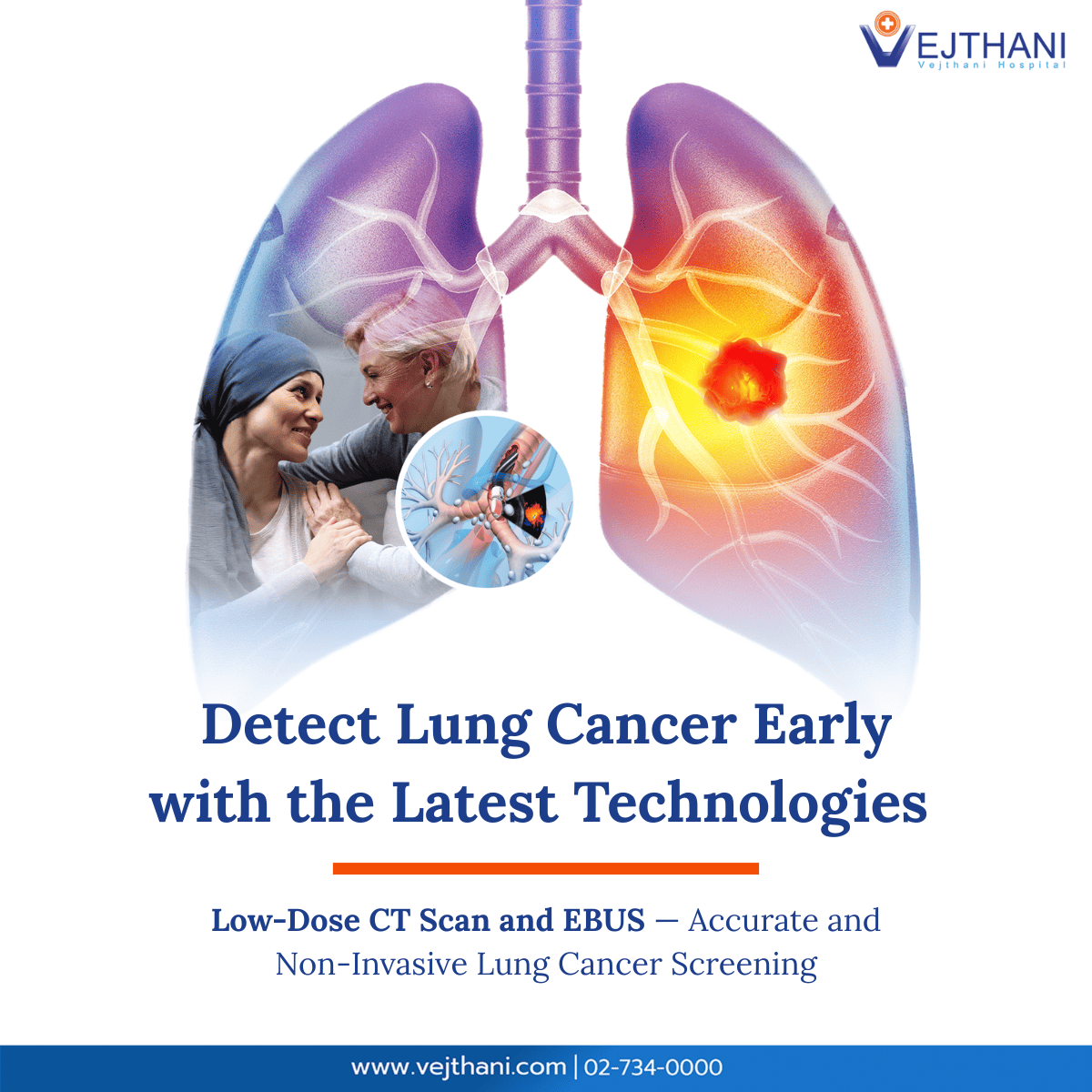Precision Screening for Lung Cancer: Early Detection with EBUS
A chronic cough, difficulty breathing, or unusual fatigue may seem like minor symptoms that many people overlook—often mistaking them for just a cold or allergies.

Lung cancer is the leading cause of cancer-related deaths worldwide—and it often remains silent—until it’s too late.
Early-stage lung cancer rarely causes symptoms, which is why thousands of lives are lost each year due to late diagnosis. Screening tests can help prevent cancer from progressing.
Chronic coughs or bloody sputum, shortness of breath, chest pain, unexplained weight loss, hoarseness, or fatigue are often symptoms of lung cancer. If these symptoms persist for several weeks, it’s strongly recommended to seek medical immediate medical attention.
Low-Dose CT SCAN is a powerful screening tool that can detect lung cancer at its earliest, most treatable stages. It is a non-invasive, quick, and highly sensitive scan that’s recommended for individuals at higher risk—especially those aged 50 and above with a history of smoking or long-term exposure to harmful air pollutants.
Unlike traditional chest X-rays, Low-Dose CT scan can detect even the smallest nodules, giving patients a better chance at successful treatment and survival.
If the CT scan results reveal abnormalities that require further investigation, the doctor may consider EBUS-TBNA (Endobronchial Ultrasound-Guided Transbronchial Needle Aspiration). It is a bronchoscopic technique combined with ultrasound that allows for precise visualization and sampling of tissue from lymph nodes or lesions within the chest—without the need for surgery.
EBUS-TBNA is suitable for people who have a lump in the chest or are at risk of lung cancer, as it offers a safe, accurate, and quick recovery option. If you or someone close to you experiences abnormal symptoms or detects a lump in the chest, don’t delay—consult your doctor promptly for proper evaluation.
Internal Medicine Center, Vejthani Hospital
Call: (+66)2-734-0000 ext. 2200, 2272
English Hotline: (+66)85-223-8888


Internal Medicine
Pulmonary Medicine and Pulmonary Critical Care